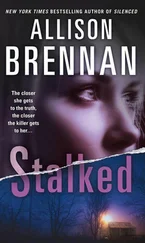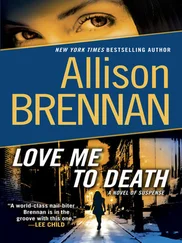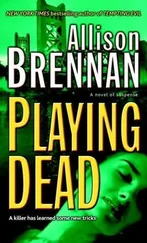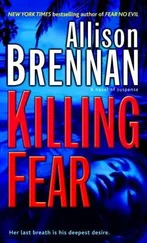Carina said, “Dr. Chen’s report indicated that the marker had been applied after she’d been washed.”
“And then there’s how he disposed of the body,” Dillon said.
“Killers often leave their victims in plain sight,” Carina said, “as a way to taunt police. To show us they’re ‘smarter.’ ”
“I’m looking at the big picture,” Dillon explained. “The common restraints. Not wanting to hear her talk or cry or scream. Putting her in garbage bags to die on her own without any help from him.”
“He put her in them!” Will exclaimed.
“Yes, but he’s a step removed, he’s watching her die as opposed to being an active participant in her death.” Dillon had a rare look of frustration on his face. “I guess what I’m trying to say is that each step he took-restraining her, sealing her mouth, washing her body, suffocating her, dumping her body-fits together if you look at it from the killer’s point of view.”
“She’s dead, she’s nothing, he throws her out like garbage,” Nick said.
“Right. She holds no more allure for him. Dead, she’s an annoyance, a chore that needs to be done. Like taking out the trash. Now, there’s one more thing that’s important.”
“He cleaned the body,” Nick said.
Dillon smiled as if Nick was his star pupil. “Exactly. Notice he washed her before he killed her. Before he put her in the garbage bags.”
“Some sort of ritual for him?” Carina suggested. “Maybe he thinks sex is dirty and therefore needs to be washed away?”
“That’s a good analysis,” Dillon said, “and I think it’s partially true. He grew up in a house where sex was considered dirty or forbidden or otherwise unhealthy. Puberty is a dangerous time for sociopaths. Hormones, unhealthy fantasies, and no outlet. Either they have no one to talk to about their feelings and how to deal with anger and their sexuality, or their fantasies have been reinforced through sexual abuse or indifference or observation.”
“So it’s the parent’s fault,” Will said derisively.
“No, I’m just saying it’s one factor. Put it all together. You have a child with sociopathic tendencies-and researchers have shown that you can see these tendencies as young as the age of four.”
“Four?” Carina couldn’t imagine being able to pinpoint a killer as a toddler.
“Remember, Cara, not all sociopaths kill. They are identified through lack of empathy, ease of lying, lack of remorse for bad behavior, among other things. But they don’t all grow up to become serial killers. I believe other factors, environment in particular, twists these kids. An abusive mother or father, usually a one-parent household or a stepparent in the picture. Not always, of course-if we knew the formula that created monsters we could put an end to them.”
Dillon continued. “You asked for my professional opinion, and based on what we know about the victim and the manner of her death, I believe that the secondary reason he cleaned her body was because of a deep-grained feeling that sex is dirty. It could have been developed by a mother who punished him for wet dreams, or something more sinister.”
“Secondary?” Carina asked.
Nick was the one who spoke. “He washed her body to get rid of evidence.”
No one said anything for a long minute. “You’re not suggesting that he’s a cop or someone with forensic knowledge?” Carina asked.
“Everyone these days is a forensic expert,” Nick said. “Look at the popularity of crime shows on television. I recently read a report about a killer who disposed of a body by feeding it to his neighbor’s pigs. Why? Because he saw it on television.”
“And the husband who put his dead wife in a drum of lye and buried it in the backyard,” Dillon added.
“Today’s criminals know what we look for, and they are doing everything they can to cover their tracks,” Nick said. “It makes our job a hell of a lot more difficult.”
“So who are we looking for?” Carina finally asked. “You said he was immature, but he has the where-withal to clean up after himself.”
Dillon explained. “Immature in that he’s not a seasoned, practiced killer. He will get more proficient.”
“He’s going to do it again,” she said flatly.
Dillon and Nick both nodded. “How old do you think he is?” Nick asked Dillon.
“Under thirty. There’re no definitive studies on the subject, but there’s evidence that most serial killers begin killing in their twenties. Killing is the first end point in a series of escalations, usually started during puberty, and sometimes younger, with bedwetting, killing animals, and setting fires. It sounds cliché, but studies have shown that these three acts are identifiable in known serial killers.”
“If he’s under thirty, he may be new to this,” Carina said.
“Exactly. Angie may be his first, or he may have another under his belt. Or perhaps a failed attempt.”
Dillon said. “He also has a strong sense of survival. He’s abnormally neat in appearance and environment. His house will be immaculate. He’ll have no tolerance for dirt. You won’t see him working in construction, for example, because he can’t stand the thought of getting that dirty. He most likely lives alone. He may date, but he can’t maintain a long-term relationship. He’ll appear safe, innocuous, pleasant, polite. He will not seem like a threat, but he has a vicious temper. He has it under control, but when it gets away from him he can’t easily regain control. Very likely a student or a college dropout. Above-average intelligence, but an underachiever. He won’t take criticism well, probably because he’s so involved in his fantasies that he doesn’t pay enough attention to anything that he doesn’t think is important.”
Nick interrupted and tapped the coroner’s report. “Dr. Kincaid, what do you make of the subdermal bruising on her torso? The coroner indicated that the marks came minutes before death.”
“You noticed that, too? What’s your guess?”
Nick shifted uneasily in his chair. “I hope I’m wrong, but I don’t think so. He laid on top of her while she died.”
Dillon nodded soberly. “I concur.”
Carina stared at the ceiling, anger and frustration building. They had more to go on, but with every comment Dillon and Nick shared, her suspect seemed less and less guilty. “God, why would he do that?”
“It’s part of the fantasy. He wanted to feel her life fade away.”
They parted company with Dillon on the street. He left in a black Lexus, and Nick walked with Carina and Will to the police station. He surmised that their silence was because of the intense, disturbing conversation they’d had at the restaurant, not because they were still uneasy around him as a relative of a suspect.
“I have a proposition,” he said.
Carina stopped outside the main doors of the station and leaned against the base of a statue. Nick couldn’t help but notice her lips. A hint of shiny gloss highlighted full, kissable lips. The rest of her long, lean body and her probing eyes said cop, stand back , but her lips spoke loud and clear: kiss me .
Her brow furrowed. Nick realized he’d been staring at her lips a beat too long. “What?” she prompted.
“I’ll bring Steve down to the police station, with a lawyer present, and you ask him anything. I’ll make sure he answers. I think with the right questions maybe he has some answers we need to find this killer.”
“We?”
“I want to be part of your investigation.”
“Why? Let’s say we clear your brother. He won’t need you here, you can go back to your own job.”
Returning to Montana was the last thing Nick wanted to do. He wasn’t ready to make the decision that would change his life, no matter what choice he made.
Читать дальше











